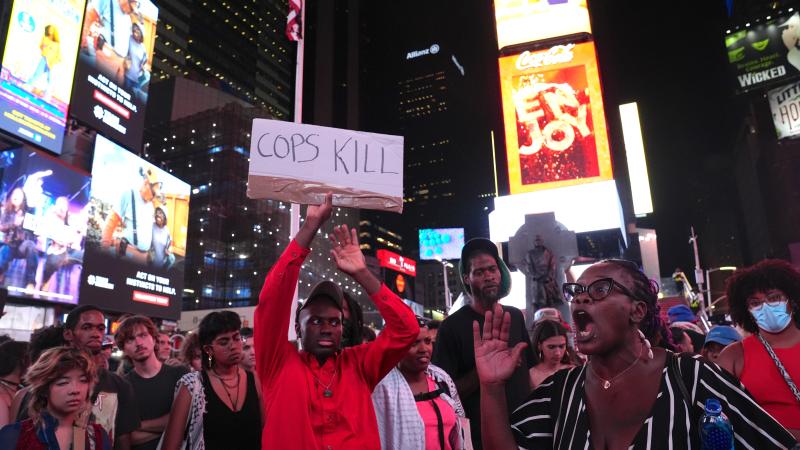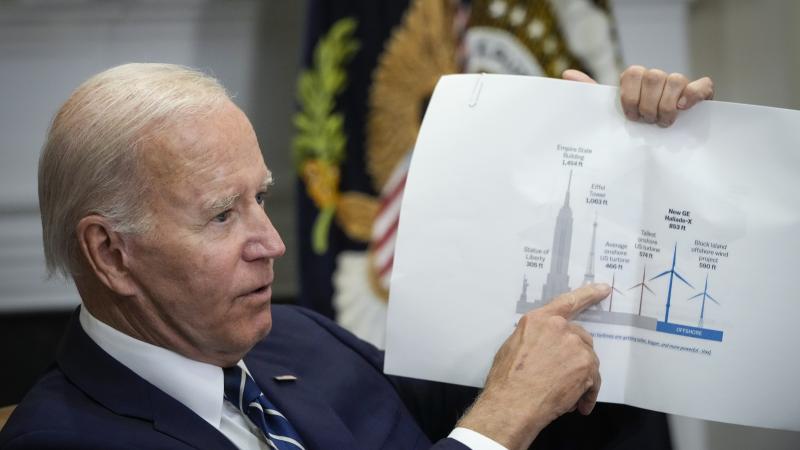Lawsuits challenge agency courts that issue ruinous fines, flout separation of powers
Family farm, accountant, horse trainers ensnared by "administrative law judges" who are allegedly pressured to deliver results sought by their agency employers.
Can the U.S. compel a business to pay more than half a million dollars in fines just because a government agency says so?
A lawsuit on behalf of a New Jersey family farm aims to whittle down the powers of administrative courts, whose judges are employed by federal agencies and answer to their leaders, and force the feds to prove their case "in a real court."
Joe and Russell Marino lost five years of challenges before Labor Department employees who acted as "prosecutor, judge and jury," according to the Institute for Justice (IJ), which is representing the brothers and their Sun Valley Orchards.
Trial and appellate administrative law judges (ALJs) upheld $550,000 in fines, most of that based on a "single paperwork violation." Just $10,000 concerned "actual working conditions," mostly from workers driving farm vehicles without U.S. driver's licenses, IJ said.
The agency classified $200,000 as a penalty and $350,000 as "back wages" that are not actually owed to employees but largely stem from the farm's failure to disclose its "meal plan" on its H-2A visa program application in 2015, when it first sought migrant workers.
Labor keeps back wages unless employees file a claim, and the agency's inspector general found it has a poor record of notifying workers about the existence of back wages.
The feds were supposed to respond to the lawsuit by Nov. 15 — more than two months after it was filed — but got court permission to extend that deadline and set a different briefing schedule that runs through this spring.
Sun Valley Orchards believes "the factual findings of the agency in these circumstances must be reviewed de novo based upon presentation of evidence by the parties," a joint filing Nov. 9 said. By contrast, the agency wants to address "purely legal issues that can be decided on the administrative record" in its adjudication.
Labor now has until Dec. 15 to produce that record, which "really should be" compiled already based on the administrative trial, filings and transcripts, IJ lawyer Rob Johnson told Just the News. But "the government gets a lot of time to do things."
The Labor Department didn't answer Just the News queries about why the record, which ended in May with the appellate ruling upholding the fines, isn't already compiled.
IJ's case, which narrowly targets the monetary penalties administrative courts have imposed, is not the only one seeking to rein in federal circumvention of so-called Article III courts that answer to the Supreme Court instead of an agency chief.
The New Civil Liberties Alliance (NCLA) has filed two challenges stemming from a 2018 SCOTUS ruling that Securities and Exchange Commission ALJs are not "mere employees" but rather "Officers of the United States" who must be appointed by the president.
One argues that the SEC's newly appointed ALJs are still unconstitutional because they are "insulated from control by the President by multiple layers of for-cause removal restrictions."
The full 5th U.S. Circuit Court of Appeals has yet to rule after hearing oral argument in January. A three-judge panel previously ruled an accountant couldn't challenge the constitutionality of her SEC proceeding before it ended.
The D.C. Circuit rejected rehearing petitions this spring in another NCLA challenge on behalf of horse trainers sanctioned by the U.S. Department of Agriculture (USDA). The public interest law firm warned the initial ruling "would force all issues appealed from agencies to first be heard by an ALJ" in a "novel" interpretation of the statutory term "administrative exhaustion."
NCLA spokesperson Judy Pino didn't answer a Just the News query on whether it plans a SCOTUS appeal in the USDA case.
'Arbitrary and capricious' fines
Before the 1970s "it was pretty much unheard of" to impose monetary sanctions in administrative court, IJ's Johnson said in a phone interview.
But after a push to greatly expand the authority of agency courts, the Supreme Court ruled in 1977 that Congress can grant adjudication authority without violating the 7th Amendment right to a jury trial. It didn't consider Article III arguments.
(Forty-four years later, the defendant in that case — the Occupational Safety and Health Administration — is again facing judicial scrutiny for fast-tracking a COVID-19 vaccine mandate under rarely used, special emergency powers.)
The Sun Valley Orchards adjudication is illustrative of how Labor has policed the H-2A visa program, flouting the checks and balances at the heart of the federal system, IJ's case summary says.
Unlike the 1977 precedent, Labor exceeded the explicit authorization from Congress for ALJs to penalize "substantial" violations of the H-2A program by excluding employers for up to three years.
The law doesn't mention fines, yet Labor has been issuing millions in H-2A fines each year since 2012 for "generally minor" violations, barring less than half a percent of farms from the program each year. The agency's 41 ALJs can impose fines under many other regulations.
Those practices violate the Administrative Procedure Act's prohibitions on "arbitrary and capricious" decisions and are reviewable in an Article III court, the law firm says. ALJs themselves have said for decades that agency leaders lean on them to rule for their employers.
"IJ's lawsuit, if successful, will create precedent that could be used across in cases dealing with any government agency that uses ALJs," it says.
SCOTUS has been "more aggressive recently" on the right to be heard in Article III courts, Johnson said, citing judgment limits SCOTUS imposed on bankruptcy courts.
Even a 2018 ruling that upheld the feds' authority to adjudicate patent disputes was based on the government's creation of patent rights, as distinct from property rights, he added.
"It's the right time to challenge this issue" both facially under the Constitution and as applied in Sun Valley Orchards' proceeding without necessarily disturbing the 1977 precedent, Johnson said. "It's like laying bricks in the wall ... sometimes you don't overrule a case overnight."
The Facts Inside Our Reporter's Notebook
Documents
Links
- according to the Institute for Justice
- agency's inspector general found it has a poor record
- lawsuit
- 2018 SCOTUS ruling
- SEC's newly appointed ALJs are still unconstitutional
- oral argument in January
- D.C. Circuit rejected rehearing petitions
- The public interest law firm warned
- Supreme Court ruled
- fast-tracking a COVID-19 vaccine mandate
- IJ's case summary says
- millions in H-2A fines
- 2018 ruling















